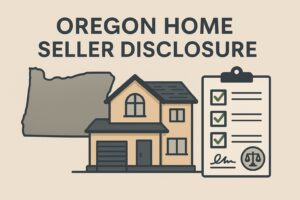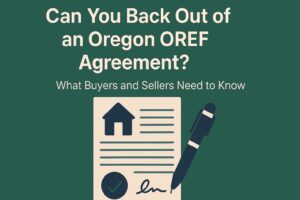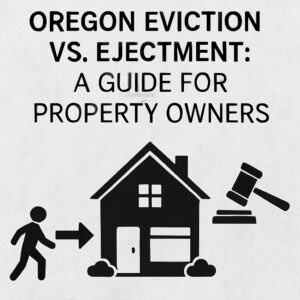How to Tokenize Real Estate
Tokenization of assets is one of the most common discussion topics in my blockchain/web3 practice. Both tangible and intangible and intangible assets can be tokenized. I have discovered that many first-time founders get lost in the cool functionality of their product and rarely step back to determine what the marketplace really wants and needs and how to make their product fit those parameters.
Real estate is one of those assets that everyone inherently understands and wants to own, especially people looking for residual income. In this post, I discuss some of the various ways to compliantly offer tokenized real estate assets for sale to open the marketplace more to potential investors.
What Types of Real Estate Tokens Can be Created?
Fractional ownership interests in real estate can be divided into three categories: (1) the land itself (I’ll call these “land tokens”); (2) rental income generated from the property (I’ll call these “rental tokens”); and (3) profits from the operations on the property (I’ll call these “operation tokens”). The tokens could be created for one or more of these purposes and their derivatives. Each of these would reasonably be classified as a type of security token because they would clearly fit the Howey Test criteria (see here).
Land Tokens
Some investors (token holders) will want the safest investment possible, so they will gravitate toward owning a fractional interest in the land itself. They do this because they are focused on capturing gains as the real estate appreciates. This is possible on both vacant land and developed land. These land token investors are true “hodlers” who are content to wait for their investment to appreciate.
Rental Tokens
Other investors will want to capitalize on the stream of rental income on a developed property. Regardless of the type of tenant, you can think of a rental token scenario as splitting the rental income into two pots: one that pays the mortgage payment and the other that gets tokenized and passed on in regular intervals to token holders.
Operation Tokens
The last type of investor wants to capture value generated by a business on the property because of the significant potential profitability of that venture. In the non-crypto context, this is commonly referred to as percentage rent. It is very common with established franchisee tenants, such as a Dunkin Donuts. The landowner gives a below-market rental rate to the tenant in exchange for a percentage of the tenant’s gross sales on a tiered basis to maximize the potential percentage rent. Operation token holders would be looking for greater returns and diversification in their investment by capturing multiple income streams from real estate. They would also be interested in a token that captured aggregated value from multiple anchor tenants.
Each parcel of real estate has different qualities and potential, and each prospective investor will have different expectations, experiences, and risk profiles.
Compliant Options to Offer Tokenized Investment Interests in Real Estate
The most efficient way to offer fractionalized interests in real estate (land tokens) is indirectly through legal entities that hold title to the real estate. The land tokens would not represent a direct interest in the underlying real property but instead a percentage of the entity that holds title to the real property. But they are the closest thing to a real-estate backed asset, next to actually tying each land token to the real estate. This alleviates the need to update the deed registry every time a land token changes hands, which is too unwieldy at this stage of the intersection of real property and blockchain.
Rental tokens and operation tokens would be backed by intangible assets, which is not necessarily problematic. Most web3 cryptocurrencies and tokens are not backed by tangible assets. But rental tokens and operation tokens would be seen as an attractive secondary or tier 2 token because of their affiliation with real estate.
Complying with Federal and State Laws in Offering Tokenized Real Estate Interests
Because each of these land tokens, rental tokens, and operation tokens would be considered securities in the U.S., these token offerings must be done in compliance with federal and state securities laws. These include the Securities Act of 1933 and Securities and Exchange Commission (SEC) regulations, as well as state securities laws and regulations, which are commonly referred to as Blue Sky Laws.
Token offerings must either be registered with the SEC or fall under an available registration exemption. The best exemptions under federal law are SEC Regulation A (Tier 2) and Regulation D (Rule 506(c)) offerings, which both allow for general solicitation and have exemptions from state registration or qualification requirements.
Regulation A (Tier 2), while more rigorous than Regulation D (Rule 506(c)), is probably the best offering exemption for projects seeking to permit widespread secondary trading of their tokens. This is because Regulation D has strict resale restrictions that would severely limit secondary sales and because Regulation D offerings are limited to only certain higher-net worth investors (accredited investors).
Each option has advantages and disadvantages, depending on the scope of the project, the investment period, the location of the project, the location of prospective investors, and the founding team’s general compliance appetite.
Intrastate Offering Exemptions
In some instances, it may make sense for a founding team to develop a project that is purely intrastate. This means that the real estate and the investors would only be located in a single US state. Each state has a bevy of registration exemptions that a project may be able to utilize to significantly reduce the compliance burden and accelerate the project.
Conclusion
In conclusion, tokenizing real estate interests offers an innovative way to open up investment opportunities and fractionalize ownership. By creating land tokens representing fractional ownership of the property itself, rental tokens tied to the income stream from tenants, and operation tokens capturing profits from business operations on the property, blockchain technology allows for greater liquidity and accessibility in real estate investing.
However, any tokenized real estate offerings must comply with applicable federal and state securities laws. The optimal path is likely either a Regulation A (Tier 2) or Regulation D (Rule 506(c)) offering under federal securities laws, which permit general solicitation while providing exemptions from state registration requirements. For projects focused on a single state, intrastate offering exemptions can also reduce the compliance burden.
Ultimately, tokenization has the potential to democratize real estate investing by lowering the barrier to entry and enabling more diversified portfolios. But founders must carefully navigate the legal landscape to ensure compliance and protect investors. With the right approach, tokenized real estate can unlock new capital and opportunities in this asset class.
For more information, see:

























